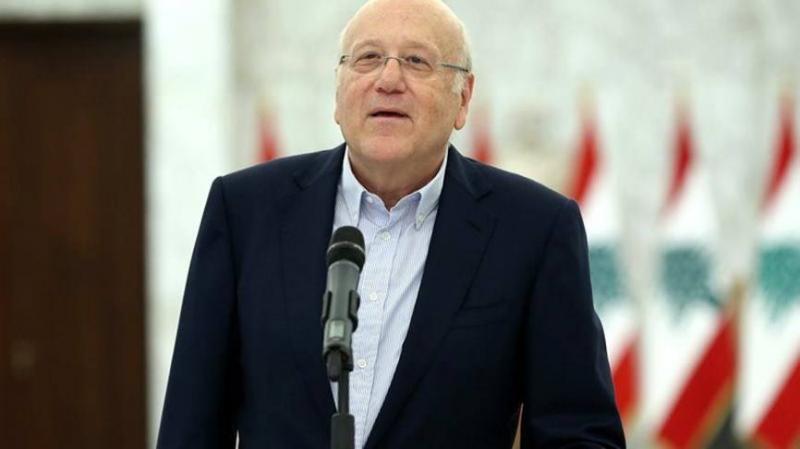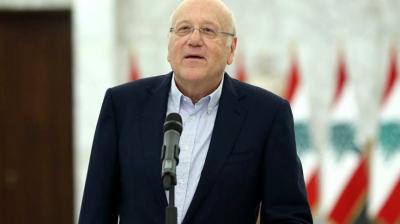Lebanese Prime Minister Najib Mikati outlined four main issues at the top of his government's agenda during a special interview with Asharq TV on Friday. These issues are "fighting the COVID-19 pandemic, rebuilding the Beirut port, general reforms, and the parliamentary elections." Mikati stated that "we have eight months of hard work ahead to achieve what we can," noting that "negotiations with the International Monetary Fund" will be one of the tasks his government undertakes.
Regarding the return to the Arab sphere, when asked about the first Arab figure he will contact following the announcement of the new government, Mikati said, "We will work on reconnecting with our Arab surroundings; I will reach out to everyone, especially the Gulf Cooperation Council countries, to halt the decline in Lebanon." He added, "We need quick assistance that I will request from my Arab brothers in the Gulf countries; we are keen on coordination and cooperation with all Arab nations, and we can only maintain close relations with them." Mikati acknowledged the concerns of some Arab countries, stating, "Lebanon can only be a safe country for Arab nations, and I promise them that."
Discussing the obstacles he faced in forming the government, Mikati remarked, "Anyone who wants to hinder the government should step out of it." He affirmed that "no team has a blocking third, whether concealed or otherwise," emphasizing his complete knowledge of his government's composition and stating that they operate as a unified team. Regarding his economic reform plan, he mentioned, "This plan is ready, but I cannot present it until after the cabinet's approval," adding, "Our rescue plan exists, and we will work to implement it, comprising eight essential reform points."
In relation to the new Finance Minister (Youssef Khalil), given his involvement in the controversial financial engineering at the Central Bank of Lebanon, Mikati stated, "The finance minister has comprehensive expertise in financial matters and is not the only one to decide, but we have full confidence in him to bring about change." He emphasized that "the real responsibility lies with politicians who have not undertaken any reforms and have been in a state of conflict, blaming the Central Bank, thus making it not the only party responsible for the current crisis."
Mikati expressed his intention to "work on stopping the free fall that Lebanon is experiencing," considering that his country "needs everything." He pointed out that "reforms in Lebanon may take time to yield results," stating, "We need hard work to fill in the gap after 13 months of political paralysis," and noted that "every Lebanese understands the current crisis, which is beyond description and requires solutions."
Regarding assistance from the International Monetary Fund, Mikati said, "We hope to make progress in negotiations with the IMF," emphasizing the necessity of fulfilling its conditions, which include "liberating the exchange rate and stopping subsidies," clarifying that this is currently happening as "we do not have the means for subsidies." Mikati confirmed, "I will work towards a satisfactory agreement with the IMF that will be beneficial for Lebanon."
The Lebanese Prime Minister concluded, "We will work on salvaging what we can from Lebanon; we will resolve the crises as quickly as possible and do not seek a three-month grace period or a hundred days; I call for immediate action to reform the living conditions in the country." Regarding the upcoming parliamentary elections, Mikati announced they will take place on schedule, stating, "No one can claim they do not want elections; they must be held on time and without hesitation."




